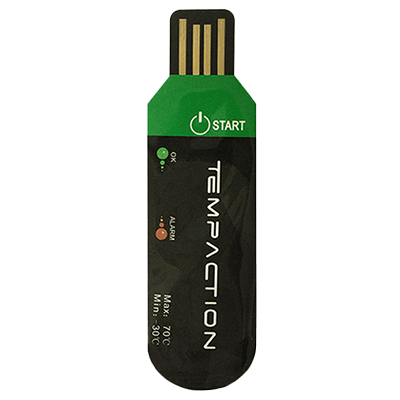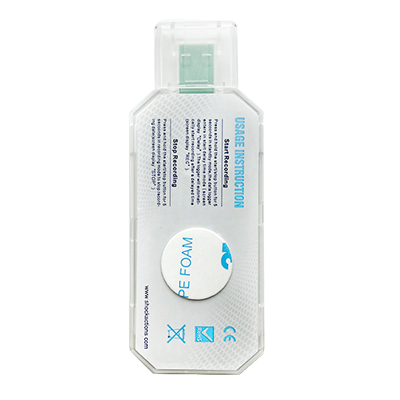In the intricate dance of preserving perishable goods and maintaining regulatory compliance, the choice between a traditional thermometer and a sophisticated temperature data logger can significantly impact the success of your operations. This article delves into the advantages of adopting temperature data loggers over thermometers, emphasizing their unique capabilities in the realms of continuous monitoring, data recording, remote accessibility, and compliance facilitation, with a special focus on disposable data loggers, PDF temperature recorders, and shipping temperature data loggers for cold chain management.

While thermometers have long been the go-to tool for measuring temperature, their utility is limited to providing a snapshot of the current condition. They lack the ability to continuously monitor and document temperature changes over time, leaving gaps in data that could be critical in industries where temperature stability is vital. Moreover, manual readings are prone to human error and cannot offer the level of accuracy and reliability needed for comprehensive quality control.
Temperature data loggers, on the other hand, excel at automatic, continuous temperature monitoring. These devices not only measure temperature at programmed intervals but also record this information for later analysis, offering unparalleled insight into environmental conditions over extended periods. This capability is especially crucial in maintaining the integrity of the cold chain, where even minor deviations can lead to significant losses in product quality or safety.
Temperature recorders provide a complete temperature history, ensuring that every fluctuation is accounted for. Unlike thermometers, which require manual intervention, data loggers work tirelessly around the clock, documenting temperatures even in remote or hard-to-reach locations. This feature is invaluable in transport, storage facilities, and during the shipment of temperature-sensitive products like vaccines, pharmaceuticals, and perishable foods.
Disposable data loggers introduce a new dimension of convenience and hygiene, particularly in applications where contamination is a concern or where the logger is unlikely to be retrieved. These single-use devices are pre-configured and ready to deploy, simplifying the monitoring process without compromising on data integrity. After use, they can be discarded safely, eliminating the need for cleaning, recalibration, or return logistics.
Innovative PDF temperature recorders take data accessibility to the next level. These devices automatically generate detailed reports in universally readable PDF format, which can be easily shared via email or uploaded to the cloud. This functionality accelerates the reporting process, facilitating immediate action based on the recorded data and simplifying compliance with regulatory requirements.
Shipping temperature data loggers are purpose-built for the rigors of transportation, designed to withstand shocks, vibrations, and variable ambient conditions. Equipped with robust sensors and extended battery life, they track and record temperatures throughout the journey, from departure to destination. Real-time alerts notify stakeholders of any deviations, allowing for rapid interventions to protect the cargo, making them indispensable in cold chain management.
Temperature data loggers play a pivotal role in meeting stringent regulatory standards such as those set by the FDA, USDA, and HACCP. Their comprehensive data trails serve as irrefutable evidence of temperature control compliance, significantly reducing the risk of product spoilage, financial losses, and reputational damage.

Switching from a traditional thermometer to a temperature data logger represents a strategic upgrade for businesses involved in the handling of temperature-sensitive goods. The benefits – including continuous monitoring, accurate record keeping, the convenience of disposable options, streamlined documentation via PDF reports, and robust cold chain management capabilities – far outweigh the initial investment. In an era where maintaining product quality and adhering to regulatory frameworks is critical, temperature data loggers have become indispensable tools for ensuring that every degree counts towards operational excellence and customer satisfaction.
By continuing to use the site you agree to our privacy policy Terms and Conditions.